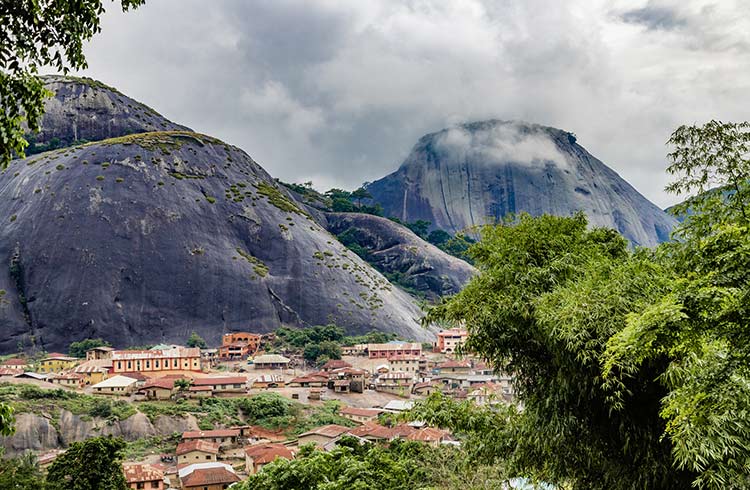Understanding Nigerian Law: What Travelers Must Know
Nigerian laws are strict, and many customs are based on Muslim cultural traditions. Theft and homosexuality are considered serious crimes.
 Photo © Getty Images/Fela Sanu / EyeEm
Photo © Getty Images/Fela Sanu / EyeEm
Conservative dress and behavior
Nigeria has the largest popultion of Muslim practitioners in sub-Saharan Africa, and travelers should behave and dress conservatively – especially outside major cities.
You can expect scrutiny from locals if you are wearing revealing clothing or being overt with public displays of affection. Women should avoid short skirts or shorts and low-cut tops – instead wear loose-fitting, lightweight, long sleeved clothing. Men should not wear shorts or tank tops.
During the holy month of Ramadan, 23rd April to 23rd May in 2020, travelers should show respect to religious and cultural customs at this time. Avoid eating, drinking or smoking in public or in front of people who are fasting.
Most government travel advisories have listed northern Nigeria as a Do Not Travel zone, but if you do find yourself in the region, be especially modest here.
Muslim law
While Sharia law operates in 12 of the northern states, non-Muslims will not be held to it. Certain acts are punished severely if committed by Muslims, such as infidelity and theft, all of which can lead to lashings, stoning and limb amputation.
Homosexuality is actually banned under federal law in Nigeria, so if you are an LGBTQ+ traveler, you may want to avoid public displays of affection.
Anything to do with drugs will result in long prison sentences and fines. Do not carry, use or buy illegal drugs in Nigeria.
Travelers should not import alcohol, fruit or vegetables, eggs, cereals, mineral water or soda, jewelry, precious metals and textiles.
Leaving the country, it is against the law to export African art and antiques without permission from the Department of Antiquities.
Be cautious with photography
In Nigeria it is illegal to photograph government buildings, military sites, airports, bridges or diplomatic sites. You are not allowed to be near any of these locations with a camera or recording device, unless you have been given permission.
However, some travelers have reported that photographing mosques and people is not a problem – always ask for permission before photographing people, and never take photographs if there is a sign saying not to do so.
Health concerns
Nigeria has health concerns similar to elsewhere in West Africa, including cholera and yellow fever, though there have also been cases of lead poisoning from mining.
Other sicknesses that have affected the country in recent years include meningococcal disease, bird flu and poliomyelitis. You must see a doctor before you go to make sure you get all the booster shots and vaccinations required for travel to Nigeria.
Water-borne diseases also pose a risk because of occasional heavy rainfall and widespread flooding in the areas of Lagos and Katsina State.
Simple and flexible travel insurance
You can buy at home or while traveling, and claim online from anywhere in the world. With 150+ adventure activities covered and 24/7 emergency assistance.
Get a quote
2 Comments
I am disabled and am in a Wheelchair so I will need assistance getting on and off the plane and to get my Luggage and get to My Fiancè who will be picking me up can you please provide me with information on what can be done for me Thank you & God Bless You 🙏🏽.
yeah, dont be disabled.